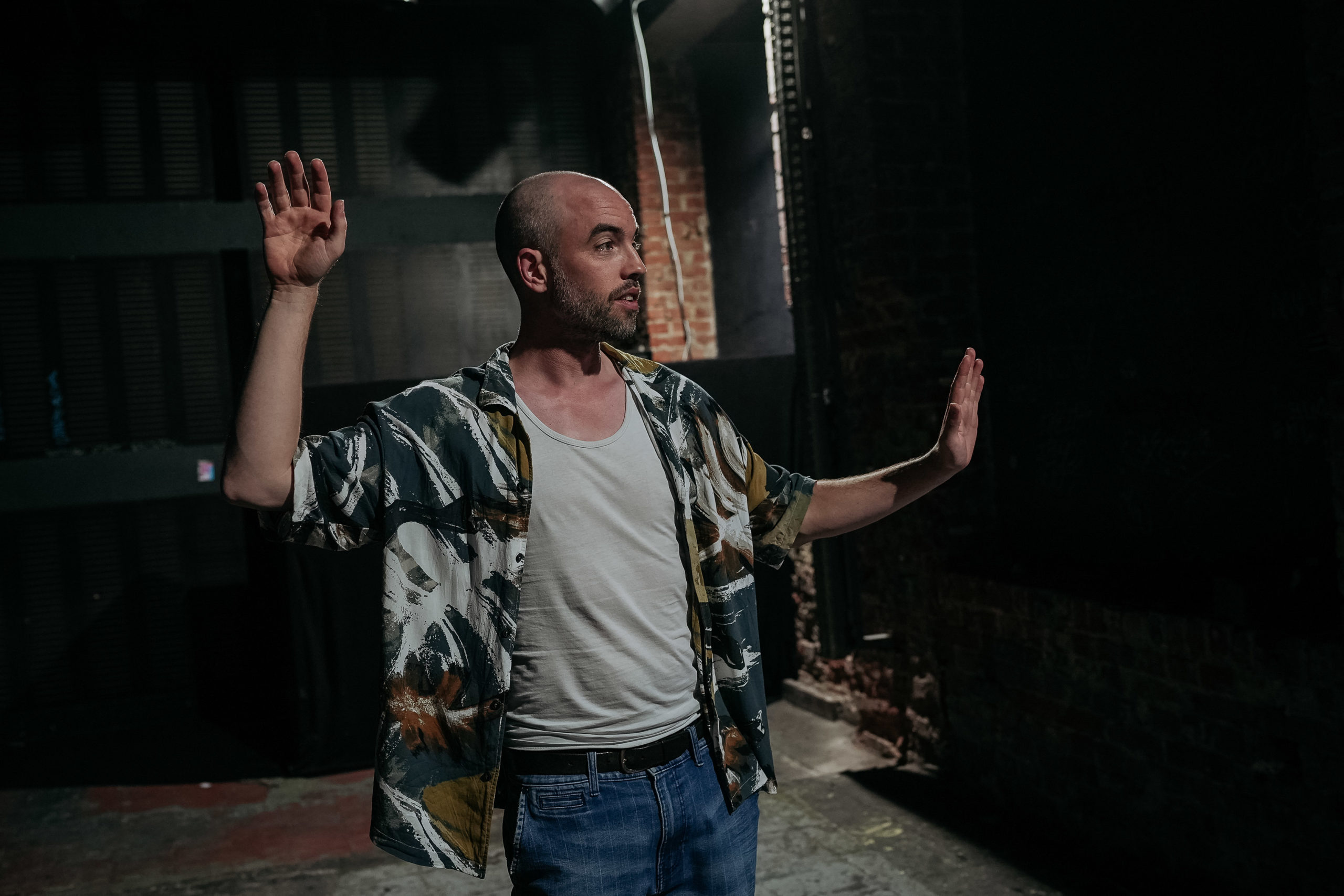
The Construction Festival was held for the first time outside of Ukraine – in Dresden. One of the formats of the festival was a two-week art residency. The participants of the project, performer Charles Washington and singer Cornelius Uhle, told us about their residency experience, artistic practices, and the performance that was shown at objekt klein a.
Tell more about your art practices. How does dance/body or singing/voice help you express your thoughts and ideas?
C.W. My intrest in dance was unknown to me for the majority of my dancing carrer, I know I loved it but i did not know why, what it was and how to explain it. It was not until i was lead to the concept of Somatics that it all became clear – dance as a somatic praxis is a engagement with the nolodge my mind body holds and its is the way i create knowledge, this for me is a world of pleasure and new perspectives.
Why did you decide to participate in the Dresden residency of the Construction Festival? How was that?
C.U. The topic of this residency was profound and the majority of work that i am part of or have been are incomparison superficial as I live in an art bubble. This was real and to be in connection and work with people who are in a war was an oppertunity I could not let down.
Was it complicated to find common ground during the residency? All of you are working with totally different mediums in your art practice. How did you find that balance of voice, body and sound in time of preparing a joint performance?
C.U. I think it is about mutual respect and patience, we were lucky as we had no pressure to produce. We could follow the flow and needs of each other in this residency, so for me I could be patient and I could give time to understand the other artists. This I believe is essential and possibly needs much more time than actually one thinks, as their are layers of understanding that take place and to go through these different stages of understanding add depth to the relationships and finally the work.

During two weeks, you worked on performance connected to the themes of vulnerability, masculinity, and fragility. What does that performance mean for you personally?
C.W. In this work, to be true to it, I had to publicly be honest about who I was, what I thought was the worst things about me, the things I am most ashamed of and of course the topics of masculinity that I don’t give time to think about. To do this or have the chance to do this especially with another man, was really quite challenging but rewarding in the feedback I got from other male and I was very happy to feel we had made something that created discourse between men – how should we be, how should we act.
How did you feel about the final result of the residency (performance at objekt klein a)? Could you describe your experience and feelings?
C.W. On that day – Olesia told me about the work they saw in Hellerau the night before, which was about the choice for men to go to the front line or not she said this was what I wanted to consider. This resonated very deeply during the performance and though all my experinac eof performance and person I faced this topic – which will never be close to the reality – I felt anger, violent and real confusion – how can I perfrom this, nothing can compare.
Would you like to continue your collaboration with other residency participants? Was it helpful in the context of establishing connections between other artists?
C.W. Yes – I think we unraveld a lot that can still be explored and I feel the relationship that we formed was really supportive and inspiring. I realised that this night was full of very beautiful artist and in the end I question if a club is the right place for such works, like live performers / singers. Its not a question if the artist are distracted or the club can not facilitate – I think it’s more a question should the public be asked to act differently than how they know a club to be or why they go to a club. I saw recently another performance in a very busy night in Dresden called Midi Midwoche where dancer moved so slowly in a crowded dance floor… I thought why do that – people go to club to dance, some go their because its their only escape, maybe this is sacred and clubs need to make money on the bar and this is noisy. (but saying that I was very surprised how interested our public was and how respectful they where)
Photos by Vira Dumke, click here for original publication.